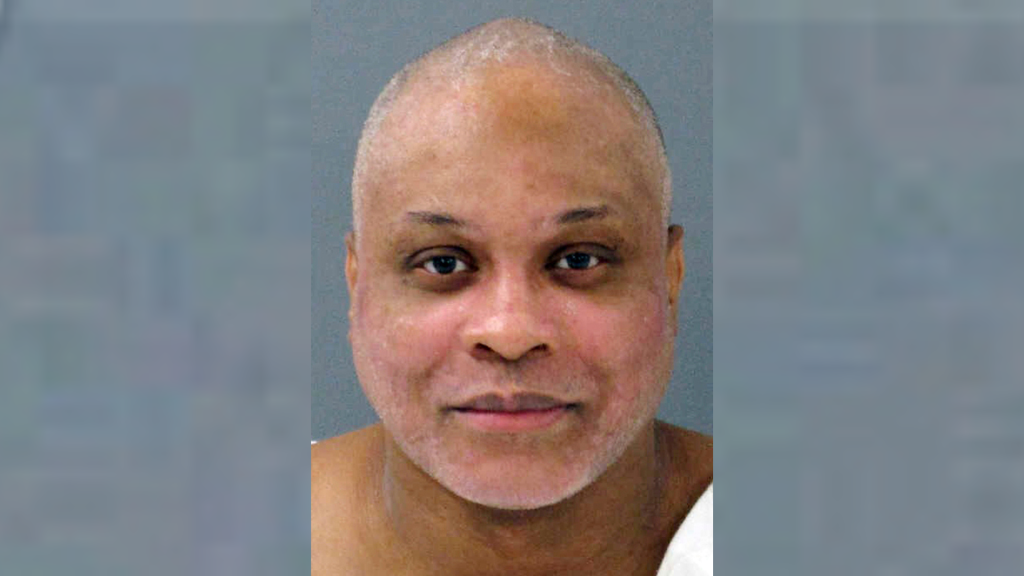After John Balentine was charged with the murders of three white teenagers who had threatened to kill him because of his interracial relationship with their sister, an all-white jury in Texas decided he should die for his crimes.
In fact, Balentine was the only Black person in the entire courtroom during his 1999 sentencing. And one of his own lawyers referred to the proceedings as a “justifiable lynching,” according to a Jan. 30 court document submitted by Balentine’s attorneys.
Videos by VICE
Balentine, who was 28 at the time of the crimes, became the sixth man executed in the U.S. this year. The 54-year-old was pronounced dead at 6:36 p.m. after receiving a lethal injection at the state penitentiary in Huntsville, amid allegations that his trial was marred by racial bias.
Balentine’s guilt was never in question; he confessed to the murders, which occurred in Amarillo, Texas, in 1998. Officials said that Balentine entered the three teenagers’ home during the night and shot them in the head while they were sleeping.
In the year’s since his death sentence, Balentine’s appeals have focused on the racial bias present in the crime and the courtroom. Although the Supreme Court has never ruled it unconstitutional for a Black man to face an all-white jury, Balentine’s attorneys alleged prosecutors blocked prospective Black jurors, which would have interfered with his right to an impartial jury.
The jury foreman, Dory England, also held racist views as exhibitted in social media posts. During the sentencing phase in deliberations, England allegedly bullied the other jurors who wanted to sentence Balentine to life imprisonment instead of death, saying “I knew if the others opted for life there was a chance he could get paroled, I would need to hunt him down,” England wrote in an affidavit after jury service. “If I ever saw Balentine on the street, I’d shoot him myself.”
England also wrote how when a juror wrote a note to the judge expressing that she did not want to impose the death penalty, he did not arrange for it to be passed to the judge as forepersons are supposed to do but instead “ripped it up.”
The shootings stemmed from racist threats Balentine received from the three victims — Edward Mark Caylor, 17, Kai Brooke Geyer, 15, and Steven Watson, 15—over his relationship; a note found at the crime scene allegedly written by one of the victims stated “I am gowing [sic] to kill the n*.” And the brother of one of the victims testified that shortly before the shootings, he pinned a piece of paper referencing the Ku Klux Klan to Balentine’s front door.
On Wednesday, the U.S. Supreme Court declined an appeal from Balentine’s attorneys to halt the execution so the allegations of racial bias could be properly reviewed. Republican Gov. Greg Abbott and the Texas Court of Criminal Appeals, however, denied a request to stay Balentine’s execution.
During a nationwide shortage of lethal injection drugs, Texas is one the states that has continued its executions. Balentine and four other inmates attempted to sue the state over what they argued were unsafe and expired drugs, but his case was thrown out. Prison officials have said the state supply of execution drugs is safe, and Balentine’s execution does not appear to have been botched.
When asked if he had any final words, Balentine replied “Yes ma’am, I want to thank y’all. I love y’all for supporting me. I want to apologize for the wrong I did to y’all. Forgive me, I’m ready ma’am.”
The victims’ witnesses shared high-fives after he was pronounced dead and declined to speak with reporters, according to multiple media reports.
Want the best of VICE News straight to your inbox? Sign up here.
More
From VICE
-

A DEA agent (Photo by RJ Sangosti/MediaNews Group/The Denver Post via Getty Images) -

The entrance to Rikers Island in Queens. Mandatory Credit: (14739280a) -

Betty White, courtesy Oakvale Wildlife Park. -

Fisherman in Bali, Indonesia. Photo by Nigel Forster/Shutterstock.
